Salzburg Journal, Part I
On Mozart, busking, immigration, swimming, Beethoven, and more
Who else would greet you in Salzburg but Mozart, or at least a bust of him? The airport here is named for him. We’re talking the “W. A. Mozart Airport.”
He shows up at grocery stores too. Here’s a poster outside my local Spar:
***
I have been coming to Salzburg for many years. (This is my 25th visit.) On the first day, I am jarred—or at least a little startled—by the sirens. I mean, the sound of them. They do not sound like our sirens in America. They have different tones and a different rhythm.
And I am always reminded of movies about World War II and its surrounding events. Always. I don’t think of rescue or help but menace.
Then, after a day or two, I get used to them.
(To hear the sound I am talking about, go here.)
***
A man who is covered in tattoos walks by in a T-shirt that says “Tattoos Are Stupid.”
***
I see Cecilia Bartoli on the street—walking across a bridge, actually—along with the crowd. In Salzburg during Festspielzeit (festival time) you see many a classical musician “in the wild” (out on the street, in a restaurant, etc.). Salzburg becomes a little Hollywood for classical music.
Which is kind of neat.
***
Bartoli is a mezzo-soprano, and a living legend. Grigory Sokolov is a pianist, and also a living legend. The day before his annual recital here in Salzburg, he receives an award from the festival. I will write about this for The Dispatch sometime next month.
Meanwhile, have a shot of Sokolov and Cecilia, after they have had a peek at his award, his medal. I love this picture—the joy of it.
***
The street music in this town—the busking—is better than it is anywhere else, in my experience. A lot of these guys should be playing in proper halls or clubs, for ticket buyers (or cover-charge payers).
***
Not often do you hear “Guten Tag” in Salzburg. You hear “Grüss Gott,” which indicates the greeting of God. A woman from Berlin tells me, “You would never hear that, where I’m from. It would be laughed at. It would seem quaint, at best.”
I’m glad the tradition continues here in Austria (and Bavaria too, I understand).
***
On the outskirts of town, I pass a field of new-mown hay. I think, “It’s a cliché, I realize. But, damn, this smells good.”
***
I see identical twins, walking together. They are women, about 70. They wear matching black dresses and carry matching pink bags. They have the same hairstyle and the same sunglasses. They each walk in the same manner, slightly bent forward.
It is lovely to see. I like to think they have been fast friends for lo these many years.
***
Another day, I see two women—also about 70—greeting each other in the street. They shake hands, firmly. I think, “You know, I don’t see this at home. I see women embracing, with kisses or not. But shaking hands—no.”
***
For the past 30 years, I’ve done—what? Fifty journals from Europe? Seventy-five? Anyway, many. And I have often asked the same question: Will it be all right? Large-scale Muslim immigration to Europe: Will it be all right? Will assimilation occur? Will things turn out—okay?
I see young people, the sons and daughters of immigrants, working in various stores and offices. They might have been babies or toddlers when I started coming to Salzburg. Now they are in their twenties, chattering away in Salzburger dialect.
Will it be okay? To be continued ...
***
There are many visitors from East Asia at the festival—from Japan in particular, it seems to me. And my observation is this: East Asian ladies are pretty much the last people to use umbrellas for their original purpose—as protection from the sun. (“Umbrella” comes from “umbra,” meaning “shade.”)
***
Man alive, has it been hot. And locals want to jump in the canal—or whatever they call this thing—to cool off.
***
I like how unembarrassed these people seem to be about their bodies. What I mean is ... how do I put this? Over the years, I’ve seen some pretty girthy women and men just put on their swimsuits and go for it, with gusto.
***
Have a look at Schloss Leopoldskron and its pond. Timeless.
***
I have seen this thing for years and years—the same blemish in the pavement. The thing kind of sticking out, at the top in the center. And, so help me, it looks to me like my home state of Michigan:
Can you see it?
***
A man walks by in a T-shirt that says “Be Brave Enough to Be Bad at Something New.” I like it.
***
I like this sign, too, in the store of a friend of mine.
***
I’m not showing you a landmark or anything like that here. I just like the picture.
***
This, too, is kind of neat:
***
Ditto. (Get that wood.)
***
I meet a man named Dieter, a lifelong devotee of music. I ask him, “Was there music in your family?” He pauses. And tells me.
He was born in 1937, in Hamburg. In 1945, they were so poor, not all of the children could live at home. Could live in the family apartment. So Dieter was sent to live with his aunt, in her apartment. She had to take in boarders, as many did.
(Boarders other than family members, that is.)
One of the boarders was a pop musician. Dieter’s aunt said, “I will charge you half the rent if you teach this boy the piano.” He agreed. And Dieter made progress.
One day, the teacher gave him a simple piece to play: “Ode to Joy.” Marveling, Dieter said, “What is this?” The teacher said, “It’s Beethoven.” Dieter said, “Who is this Beethoven? Has he written anything else?”
This started him on his life of music, Dieter tells me. It meant the world to him: what his aunt, and this boarder-teacher, did.
Thank you for joining me today, my friends. I’ll see you tomorrow for Part II. All the best.



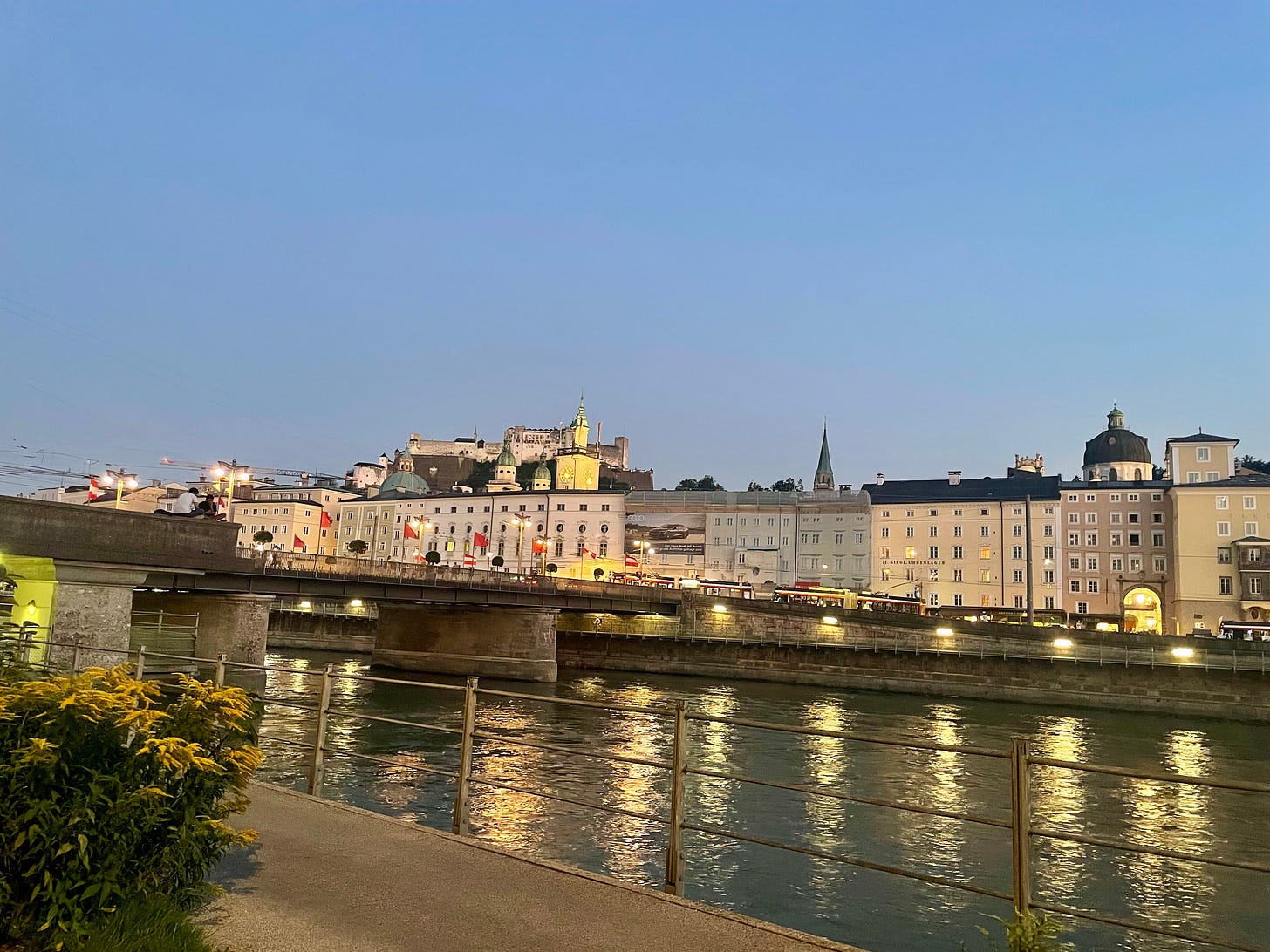
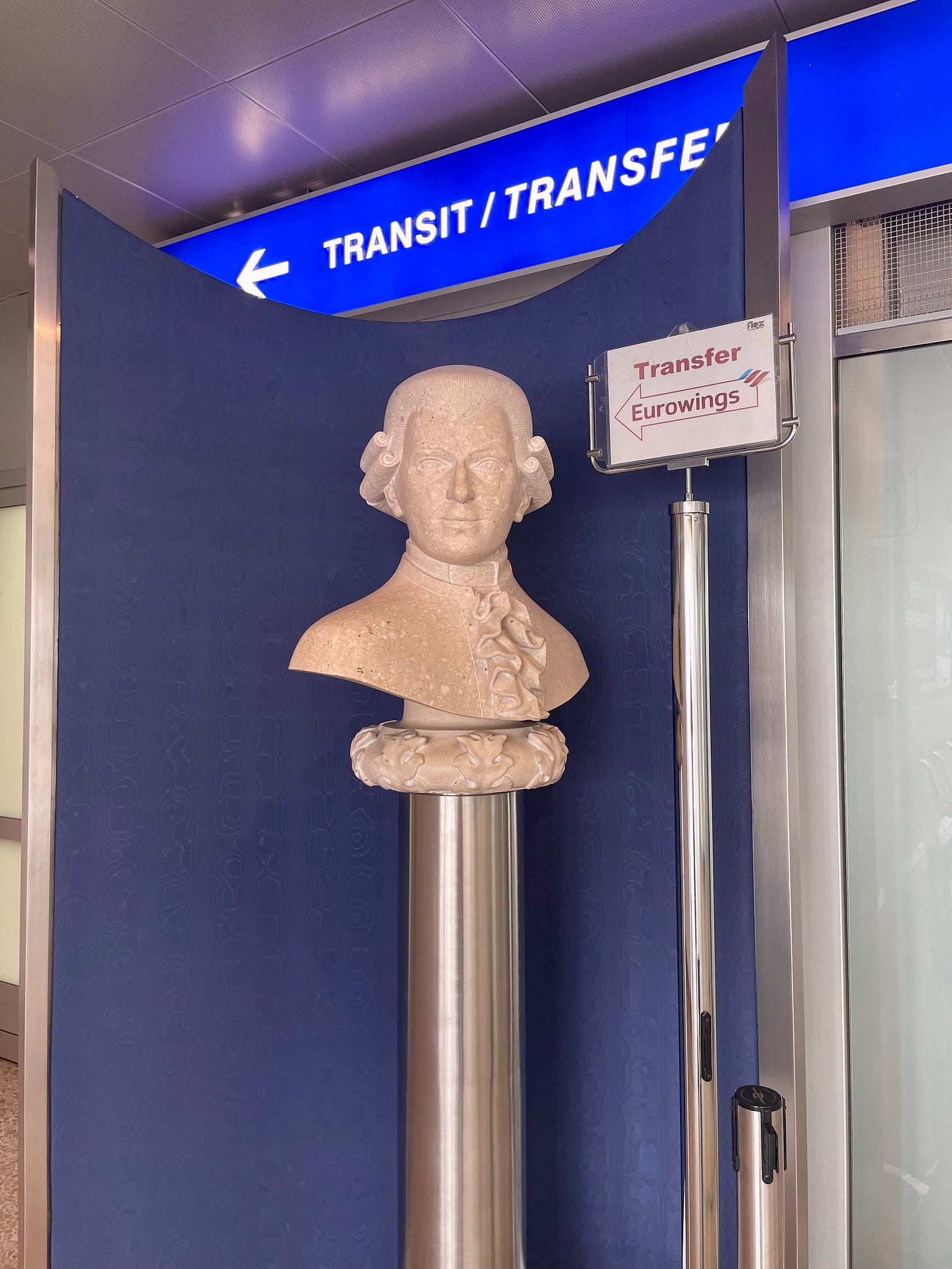
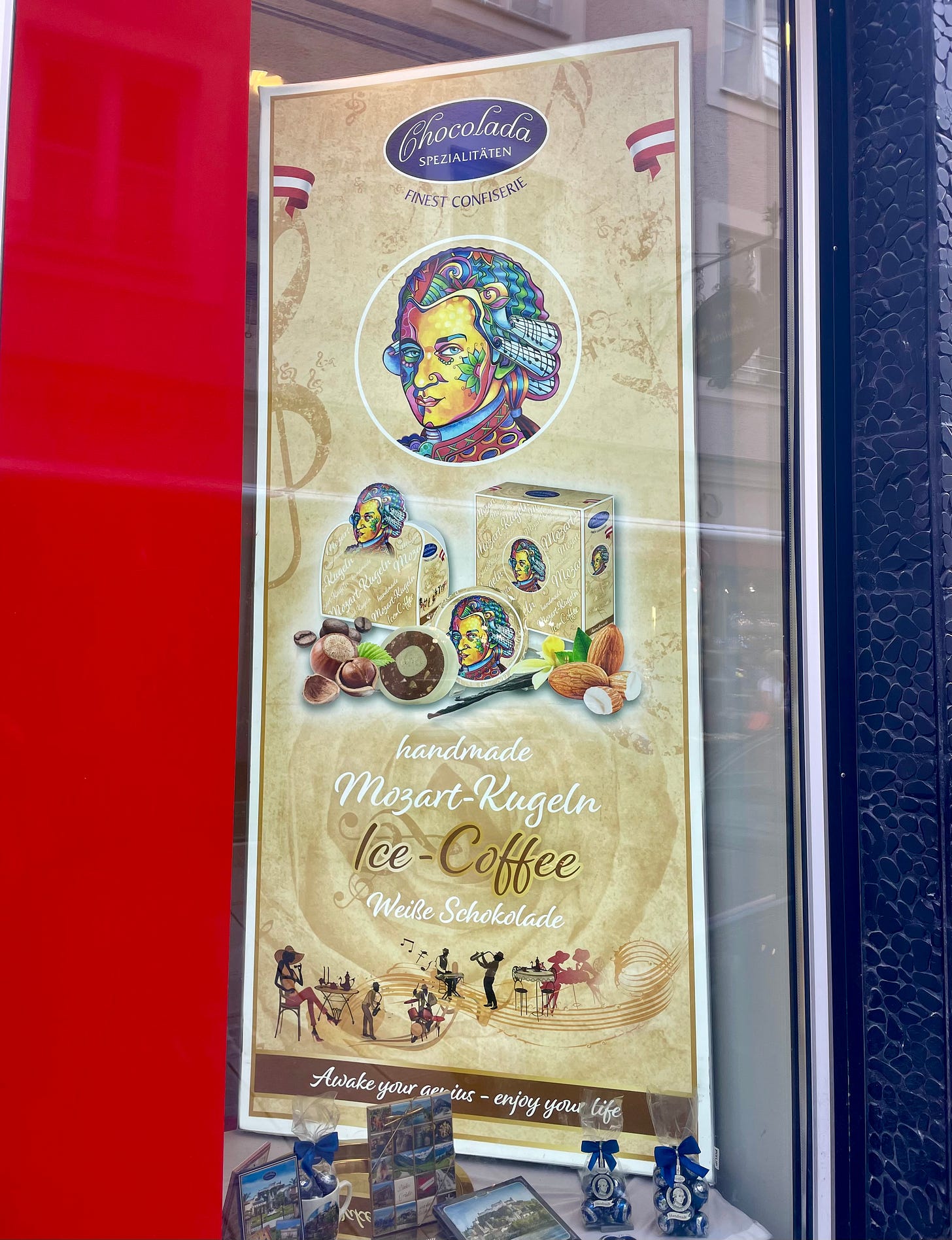
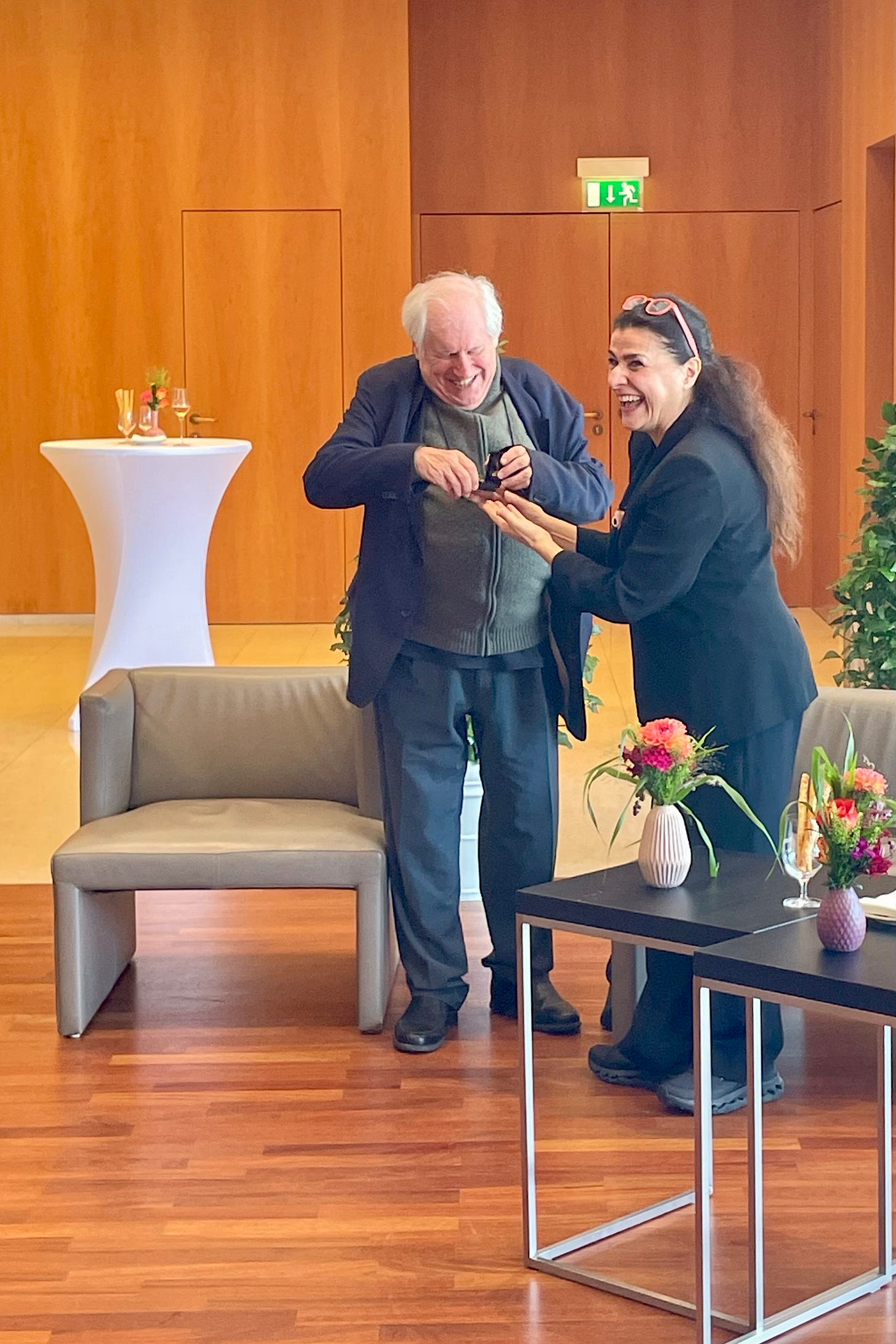
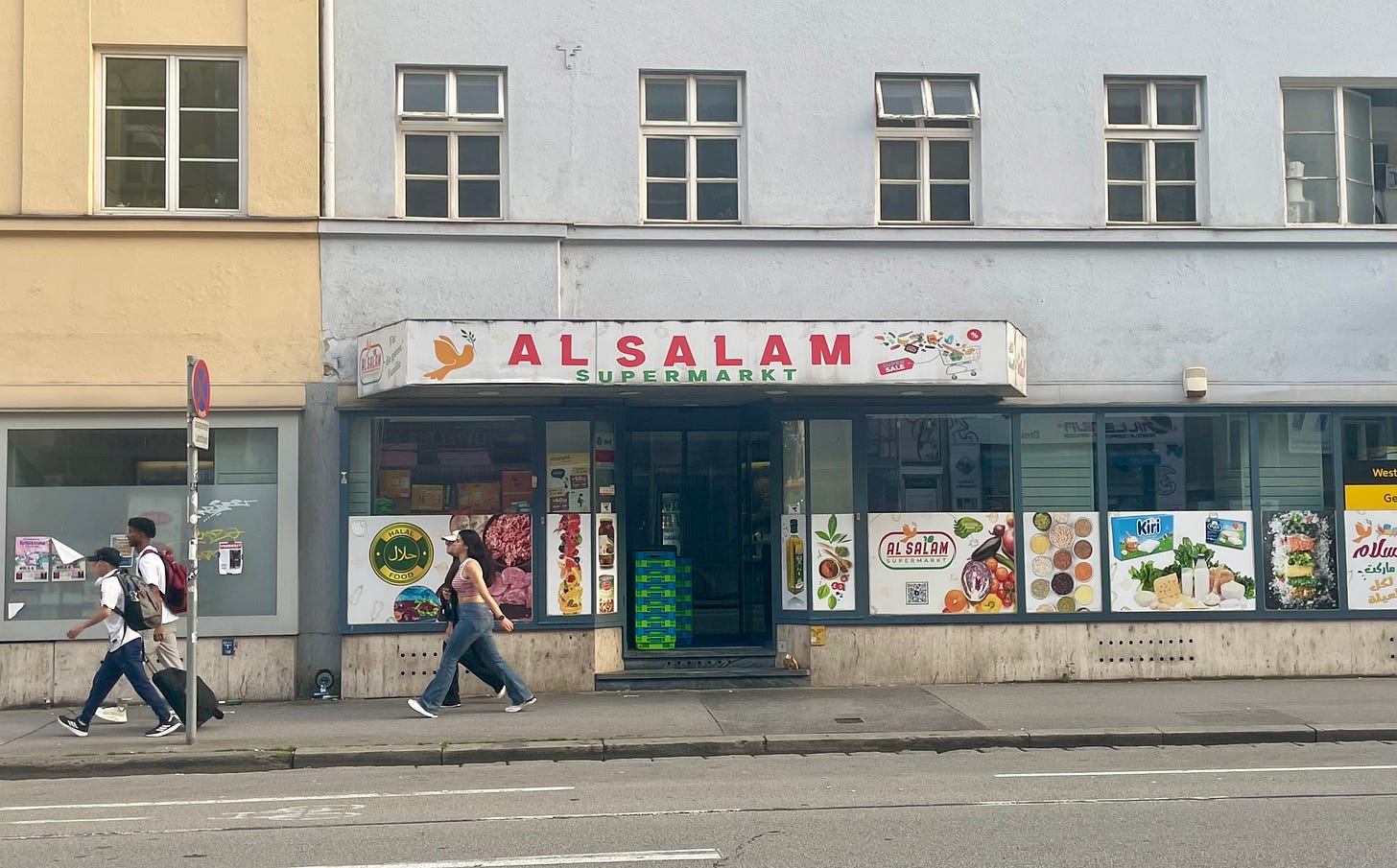
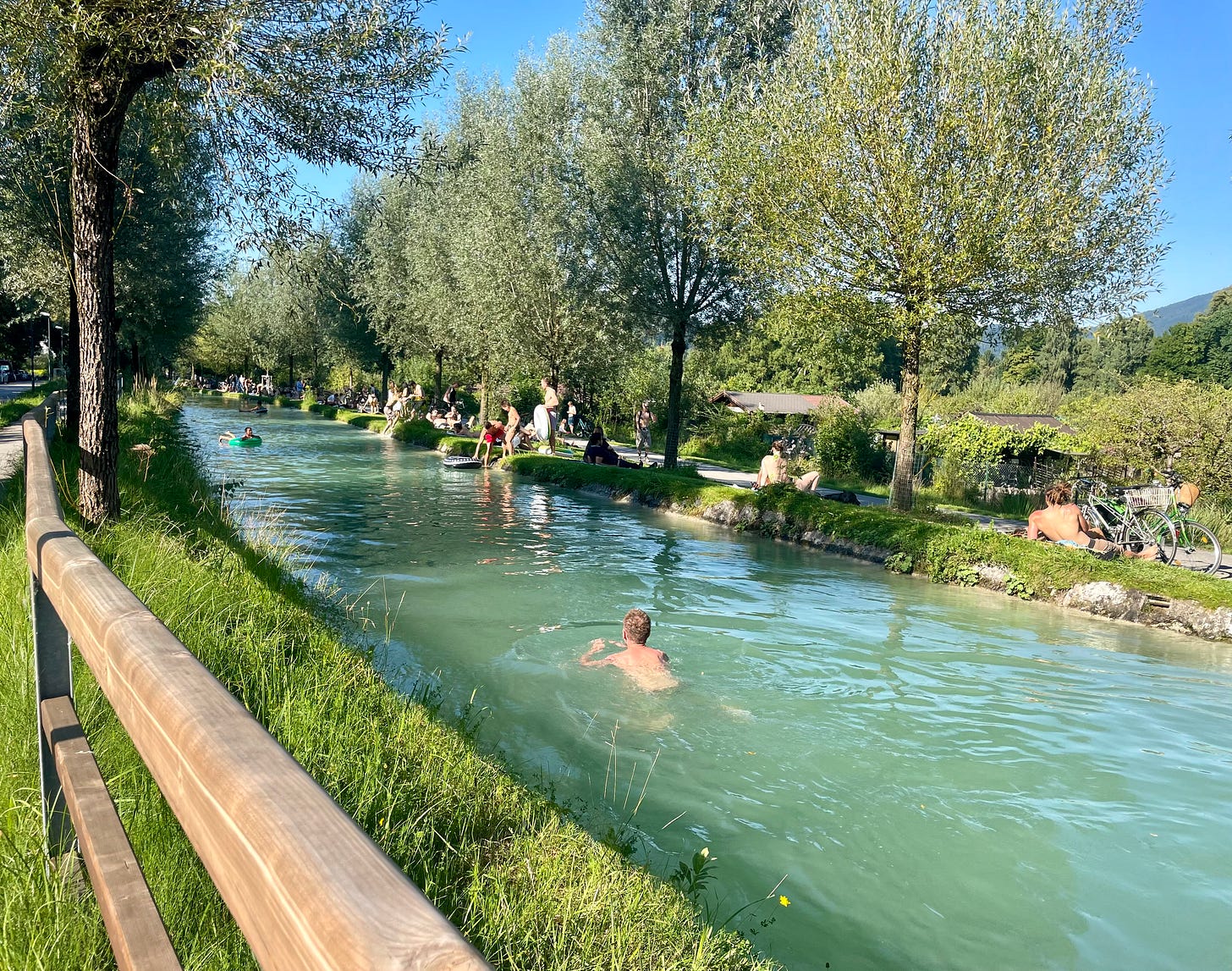

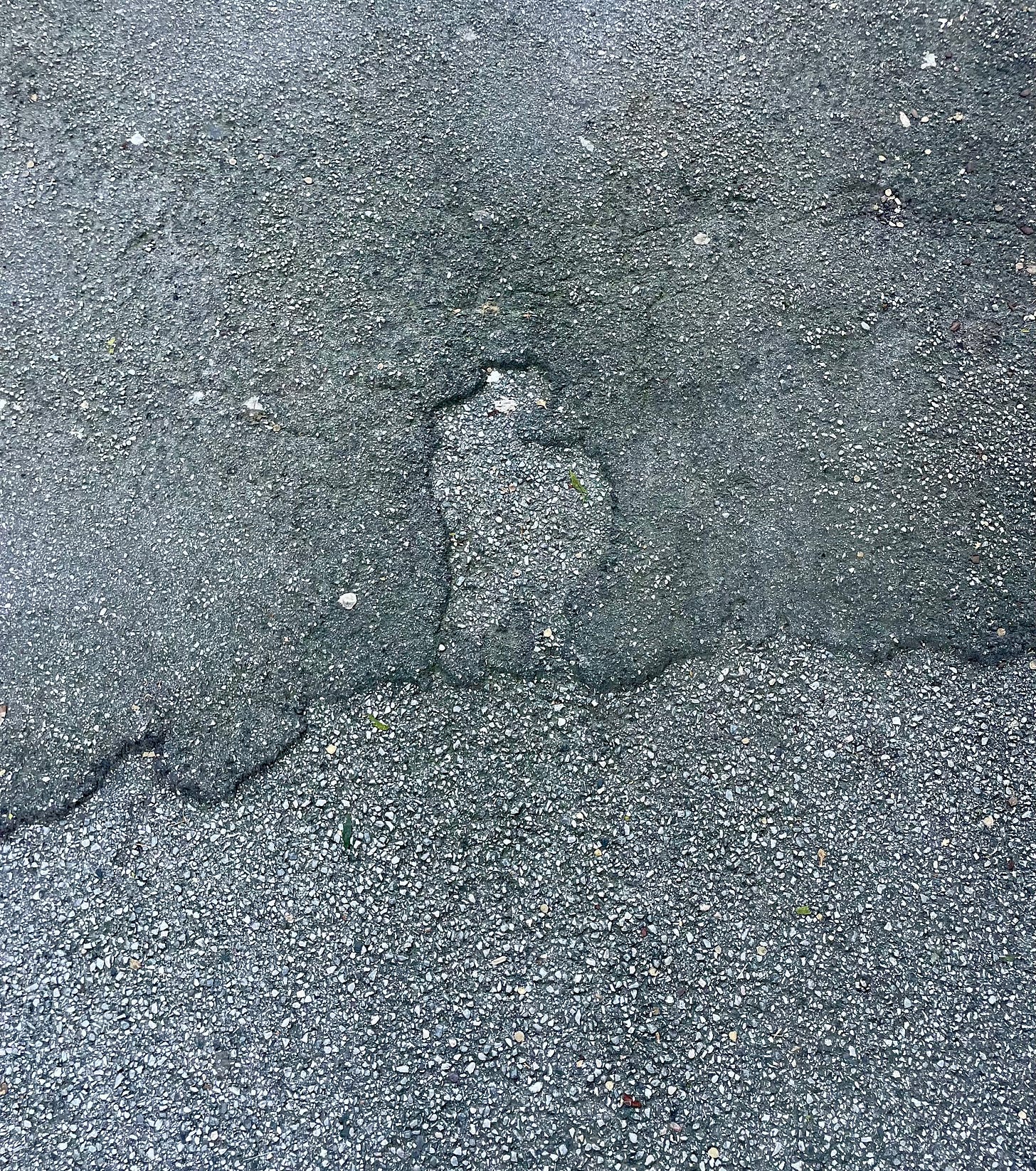
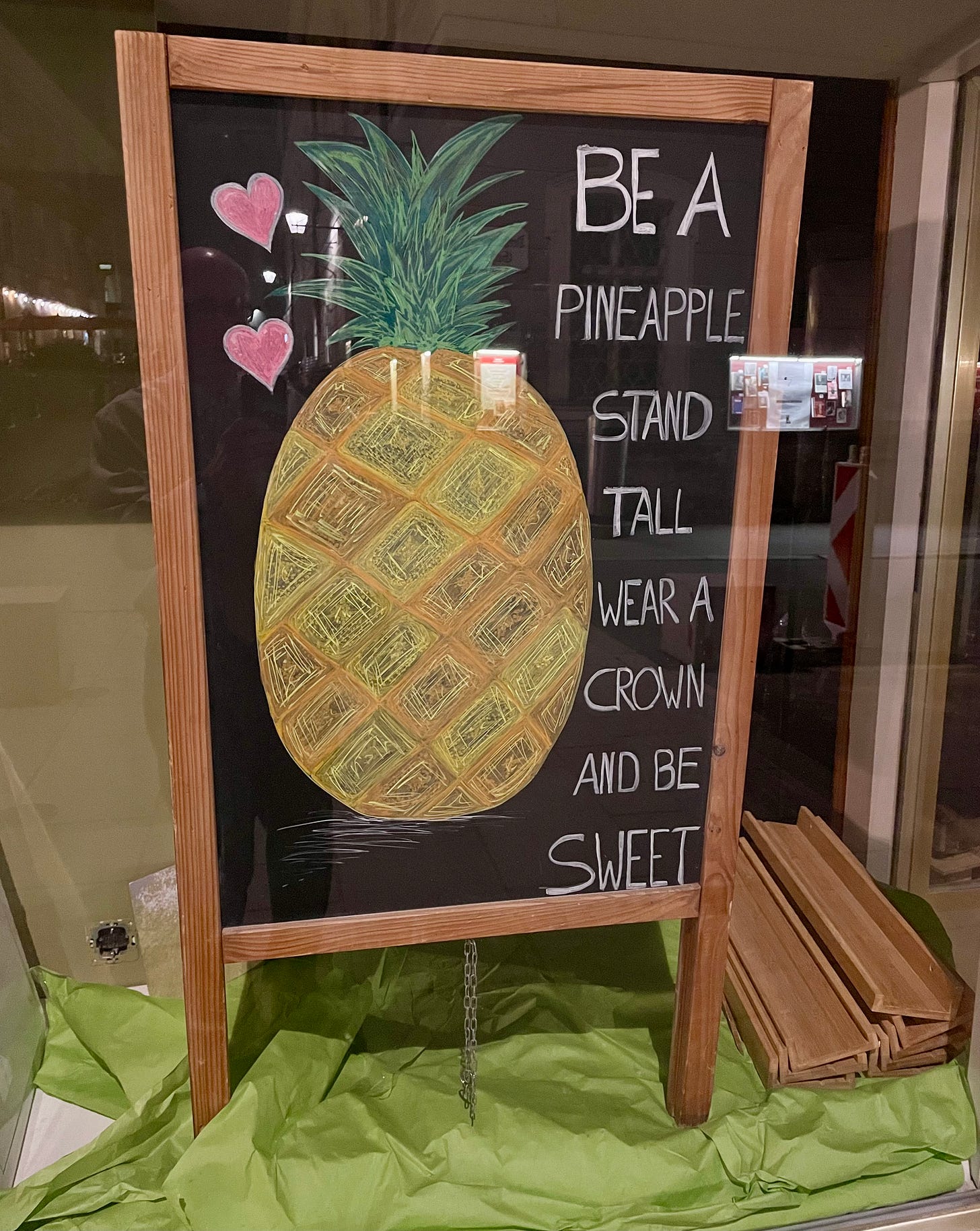
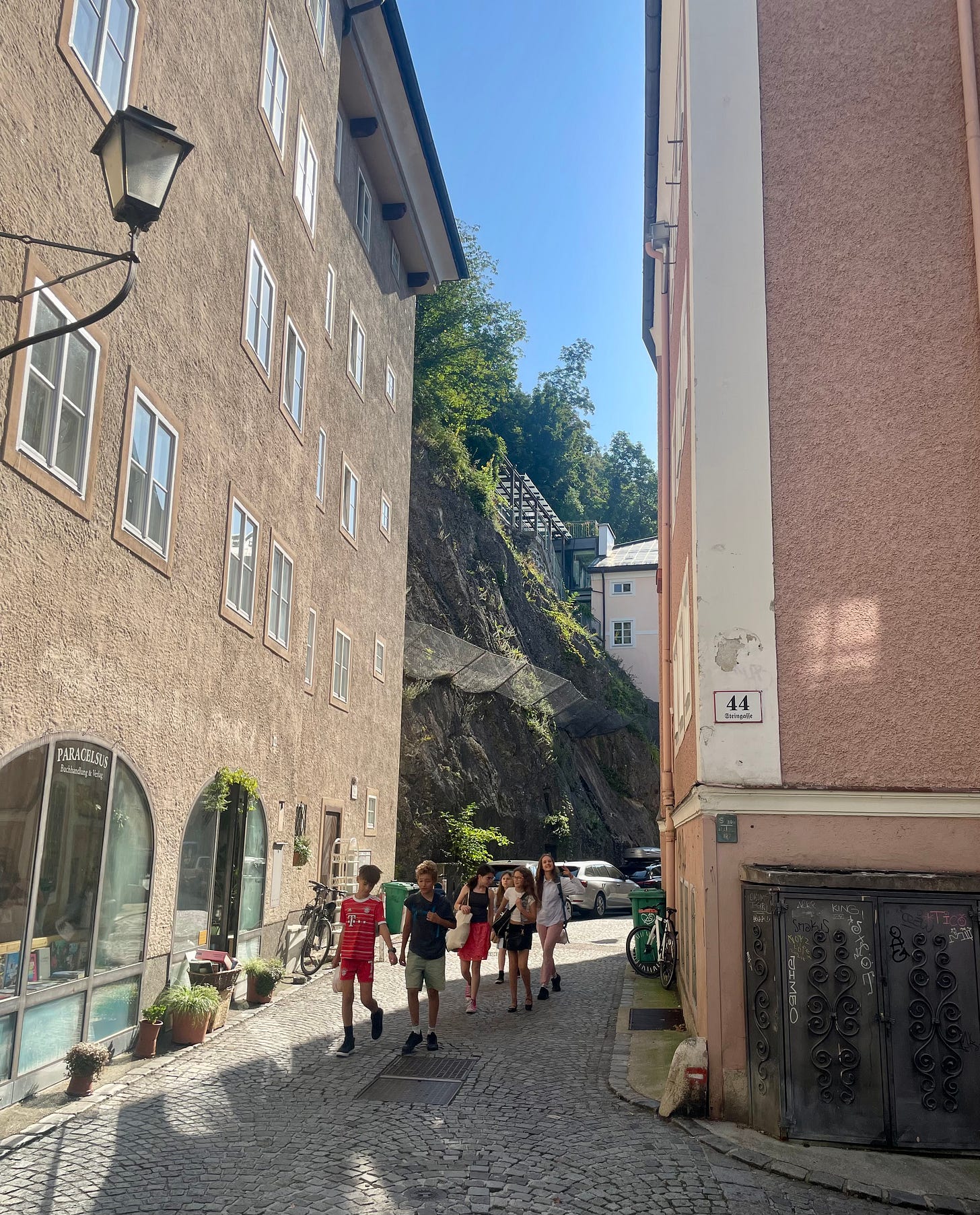
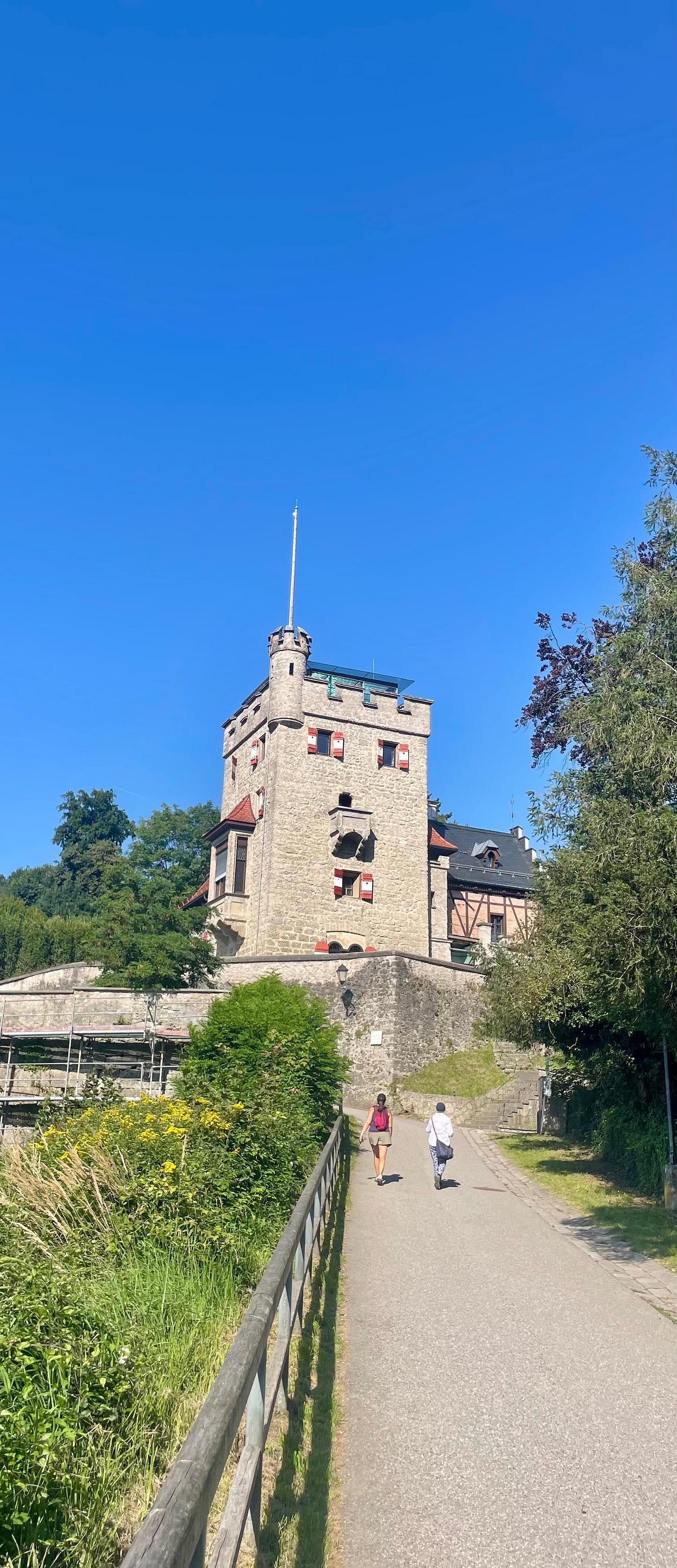

I enjoy my annual vicarious trips to Salzburg.
Thank you.